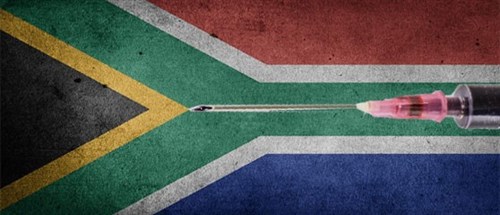South Africa health experts warn of risk and futility of sharing blood to get high
Medical experts in South Africa have issued stark health warnings to people engaging in “bluetoothing", whereby people inject the blood of someone who has already injected drugs in a futile attempt to get high.
7 Mar 2017Medical experts in South Africa have issued stark health warnings to people engaging in “bluetoothing", whereby people inject the blood of someone who has already injected drugs in a futile attempt to get high.
“Bluetoothing”, named after the technology by which electronic devices connect to each other over a short distance, gained sudden notoriety in South Africa this month after several newspapers published graphic exposés of the practice.
Despite extensive media coverage of “bluetoothing” in South Africa, it is not believed to be a common practice, but inaccurate media reports of it may actually be increasing its prevalence.
A similar practice - nicknamed "flash blood" has been reported in Kenya and Tanzania over the past decade.

“Bluetoothing” is allegedly associated with the use of either heroin or whoonga. The precise contents of whoonga, an illegal drug that is seemingly unique to South Africa, are unknown, but studies have found that it often contains a mixture of antiretroviral HIV medication and heroin.
In an interview in The Times, a South African daily paper, a man describes how he resorts to blood-sharing when he exhausts his own whoonga supply.
"When I do not have anything and my friend has a hit‚ he injects himself and then I draw his blood and inject it in myself to get my high," he says.
Despite individuals’ claims of acquiring a “high” from blood-sharing, experts insist that the practice is futile.
Click here to read the full article
If you have any comments please tweet us @idhdp or visit our facebook page
Doctors can lead the way to healthier drug policies – join IDHDP now
Share this on: